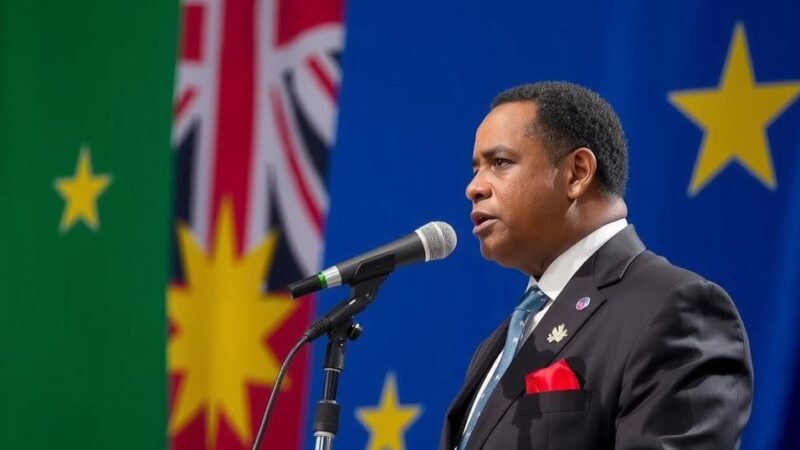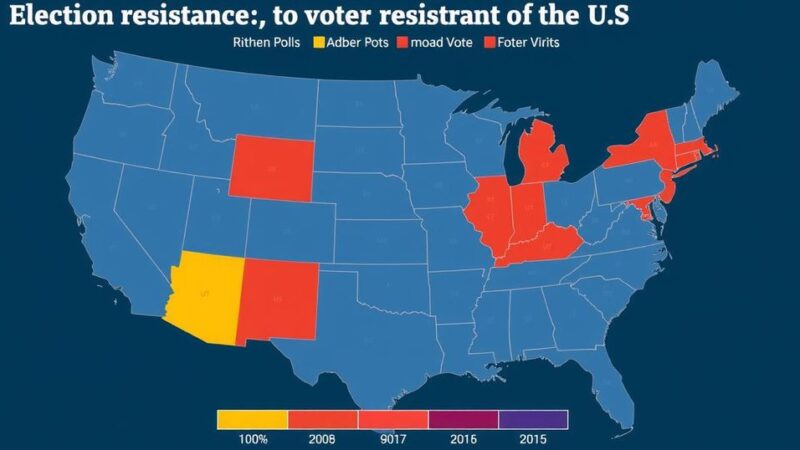Donald Trump’s victory in the 2024 election reflects a global trend of anti-incumbency, with voters expressing widespread dissatisfaction toward the Democratic party, particularly Vice President Kamala Harris. This sentiment, evident both domestically and in various countries, suggests that economic factors like inflation play a significant role in shaping electoral outcomes, indicating a shift towards a demand for change in leadership.
The recent election of President-elect Donald Trump in 2024 can be attributed to a significant trend across the United States where voters expressed discontent with the Democratic party. Vice President Kamala Harris’s performance was markedly poorer compared to President Biden’s in 2020, reflecting a widespread shift among demographics that includes urban and rural voters, as well as constituents from both blue and red states. This election serves as a microcosm of a broader global feeling of anti-incumbency, where voters across numerous countries seek change from existing leadership. This apparent disdain towards incumbents is not isolated to the U.S.; it is resonant globally. With 2024 marking a historic level of electoral engagement worldwide, sentiments were consistent, leading voters to oust incumbent leaders in several countries like the United Kingdom, India, and South Korea. The political landscape reveals a pattern: dissatisfaction has surged, leading many citizens to reject the ruling party, regardless of its political orientation. Trump’s victory thus exemplifies America’s integration into a worldwide movement characterized by a call for new leadership. The narrative surrounding Harris’s defeat often attributes it to campaign missteps or messaging failures. However, according to data, these explanations inadequately account for the uniform decrease in support she experienced across various demographics. Notably, early numbers indicate that her struggles were not limited to one group; they extended to others, including nonwhite voters and educated individuals. Therefore, it becomes evident that a collective discontent influences electoral outcomes, which is better understood through the lens of global anti-incumbency rather than individual campaign strategies. In examining the reasoning for this widespread disillusionment, inflation emerges as a primary factor. The persistent rise in prices following the COVID-19 pandemic has led to economic hardship for many. Voters retain memories of prior lower prices and perceive any economic growth as overshadowed by inflation’s impact. While this inflation rationale is still being examined and requires additional data for full validation, it serves as a plausible explanation for the desire for a change in leadership. The election results echo a strong current of global dissatisfaction with established governments, illuminating a potential alignment between the American electorate and international political trends. Thus, President-elect Trump’s victory should be viewed as part of a larger movement demanding change rather than merely a reflection of national issues.
The article discusses the election outcome of Donald Trump in 2024, highlighting the anti-incumbent sentiment prevalent in global politics. By analyzing the factors leading to his victory, it establishes a context where dissatisfaction with current leadership transcends specific electoral campaigns and reflects a worldwide trend. The focus on Vice President Kamala Harris’s failures amid this backdrop demonstrates how the electoral landscape is influenced by broader socio-economic issues, particularly inflation.
In summary, the 2024 election serves as a compelling example of a global anti-incumbency movement, with Donald Trump’s victory indicating a pronounced desire for political and economic change. The performance of Vice President Kamala Harris, while criticized for specific campaign choices, ultimately reflects a wider disenchantment with the ruling party, compounded by issues such as inflation. As the U.S. aligns itself with international trends, it becomes clear that the collective demand for new leadership is shaping the political future.
Original Source: www.vox.com






